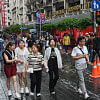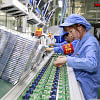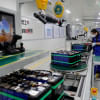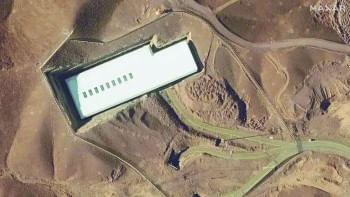Chinese premier warns world financial leaders of 'deglobalisation' risks

China's number two leader warned on Monday that "deglobalisation" was putting further strain on the world economy, as he welcomed the heads of multilateral financial institutions to Beijing.
Premier Li Qiang made the remarks in his opening speech at a summit attended by the top leaders of organisations including the International Monetary Fund, the World Trade Organisation and the World Bank.
"In the context of weak world economic growth currently, uncertainty... has further increased, causing major interference to the operation of the world economy," Li told attendees at the Chinese capital's opulent Diaoyutai State Guesthouse.
He added that "the number of new discriminatory trade and investment measures globally has increased annually" since 2020.
"It can be said that the trend of deglobalisation is getting worse and worse," Li said.
China is battling headwinds including a prolonged debt crisis in the property sector and high youth unemployment, while official data released just ahead of Li's remarks showed the nationwide inflation rate slowed to 0.2 percent in November in a further sign of weak demand.
The country's leaders are looking for ways to shore up foreign trade before the inauguration of US President-elect Donald Trump, who has threatened to slap onerous tariffs on Beijing.
Li criticised "some countries" for "imposing high tariffs at every turn (and) setting up protective barriers with more and more restrictions on trade", but did not mention the United States or Trump by name while reporters were present.
Trump initiated a gruelling trade war with China in his first term, accusing Beijing of intellectual property theft and other "unfair" trade practices.
He has promised to levy even higher taxes on imports from the world's second-largest economy after taking office next month.
China unveiled measures last month intended to boost trade, including an expansion of export credit insurance, strong financing support for foreign companies and smoother cross-border trade settlements.

 For all latest news, follow The Daily Star's Google News channel.
For all latest news, follow The Daily Star's Google News channel. 








Comments